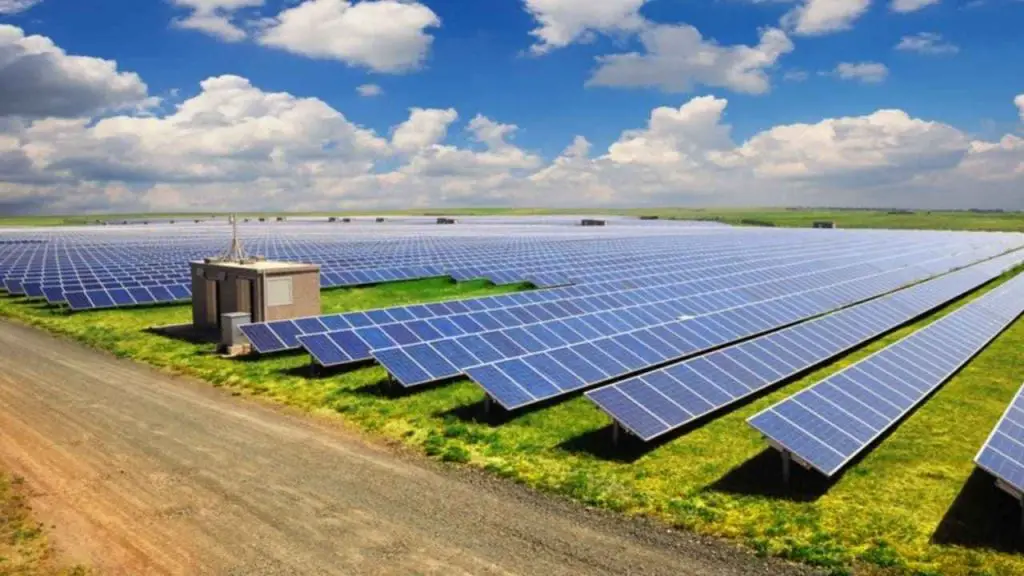Are you looking to become part of the renewable energy revolution such as by starting a solar farm?
If so, you have taken an exciting first step; harnessing clean, reliable, and affordable solar power is becoming increasingly popular within our society.
Getting started can seem daunting with all the available information and decisions you must make. This blog post will provide tips on how to start a solar farm project properly.
We will cover topics ranging from exploring your options for financing to selecting the ideal location for your new venture – giving you the tools needed to get your dream off the ground!
What Are Solar Farms?
Solar farms offer an innovative way to access clean and renewable energy. They are large assemblies of photovoltaic solar panels, batteries, and other related equipment that capture the energy from the sun’s rays and transform it into electricity.
Solar farms make sustainable energy accessible commercially, allowing businesses, public organizations, and citizens alike to power their operations without the emissions released by traditional methods such as burning fossil fuels.
Furthermore, with advances in solar technology resulting in the cost-effective implementation of these facilities, they are fast becoming a powerful yet earth-friendly alternative to generate our electricity needs.
As demand for cleaner and more renewable energy sources continues to increase around the globe, solar farms will almost certainly become a bigger part of meeting our future energy requirements.

How To Start A Solar Farm?
Starting a solar farm may seem daunting, but with careful planning and the right resources, it is achievable. Before you begin, it’s important to research local regulations and incentives related to setting up renewable energy sources.
Once your project is planned out and approved, you’ll need to choose a location that has ample space, access to electricity lines, and minimal shade.
From there, you’ll need to select the type of solar panel most suitable for your purposes based on cost efficiency, power output, and other requirements of your project.
Ultimately, you must consider how the solar farm will fit into the larger energy grid.
Once all these factors are accounted for, it’s time to install the infrastructure needed and connect essential components such as inverters and transmission lines.
With patience and sufficient dedication, your budding solar farm business can become a successful venture in no time.
Benefits Of A Solar Farm
The benefits of a solar farm are:
1. Cost Savings
Solar farms can provide significant savings on energy costs by decreasing dependency on traditional sources of electricity.
This helps reduce operational costs, reducing the financial burden of energy bills.
2. Environmentally Friendly
Solar farms are a clean, renewable source of energy that does not produce any emissions or release pollutants into the environment.
This helps reduce greenhouse gas emissions impact, helping combat climate change.
3. Versatility
Solar farms can be designed to fit a variety of purposes and locations.
For example, they can be used in remote areas where access to traditional sources of electricity is limited or nonexistent, as well as for businesses and homes that require additional energy.
4. Reliability
Solar farms are capable of producing electricity even in low-sunlight conditions, such as cloudy days or at night.
This means they can provide a consistent supply of energy, which is critical for businesses and households that rely on electricity.
5. Job Creation
The construction and operation of solar farms create jobs in the local community. This can help stimulate economic growth and provide new opportunities for individuals to gain employment.
Overall, solar farms have a variety of benefits both economically and environmentally.
They are an excellent alternative source of energy that can help reduce costs while providing clean, renewable energy to power homes and businesses.
As technology continues to advance, solar farms are likely to become even more commonplace, providing even greater benefits to the economy and the environment.
What Is The Cost Of Starting A Solar Farm?
The cost of starting a solar farm can vary greatly depending on the size and scope of your particular project. The upfront costs can include purchasing land and solar panels, as well as installing necessary equipment.
Depending on the location of the farm, some other expenses may also be incurred for proper permits or compliance with certain regulations.
Additionally, many solar farms require ongoing operational expenses such as maintenance to ensure that the energy generated by the panels is properly utilized.
While these initial investments may seem daunting initially, it’s important to remember that most solar farms generate their own electricity once they’re up and running, offering significant long-term savings on energy costs compared to traditional sources like fossil fuels.
How Does Solar Farm Make Money?
Solar farms have become an increasingly popular investment in recent years. At first thought, it may be hard to understand how a business model reliant on energy from the sun could be lucrative.
Despite its initial lack of appeal to some, solar farming is actually a highly profitable venture. Solar farms make money by selling the electricity they generate.
The solar farm owner sells their electricity to utility companies or directly to customers in various markets, allowing them to reap considerable financial rewards.
Additionally, solar farmers can receive additional revenue streams through grants, tax credits, and Renewable Volume Obligations (RVOs).
These resources incentivize renewable energy production and ensure that owners of solar farms are financially rewarded for investing in environmentally friendly solutions.
With all these revenue streams available, it’s no wonder that more and more individuals are beginning to invest in solar farming!
Conclusion
Solar farms are a great way to generate renewable energy and help the environment. If you’re thinking of starting your own solar farm, there are a few things you need to keep in mind.
First, you’ll need to research and ensure that solar farming is right for you. Second, you’ll need to find the perfect location for your farm. And third, you’ll need to get all the necessary permits and licenses before getting started.
With a little bit of planning and preparation, starting your own solar farm can be a rewarding experience.
Latest Posts:



